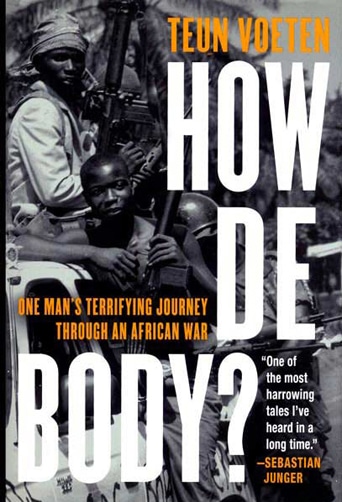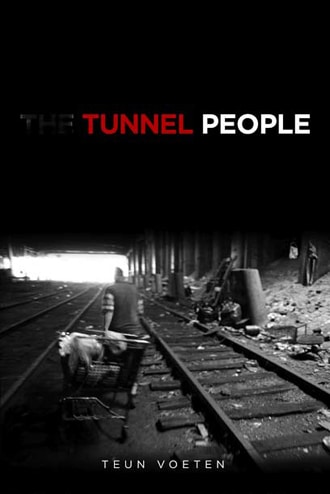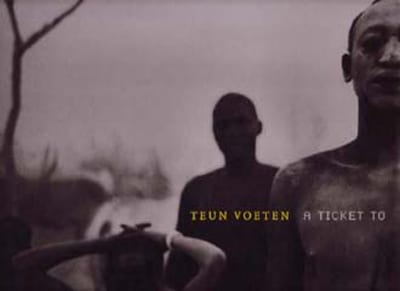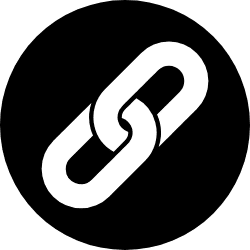

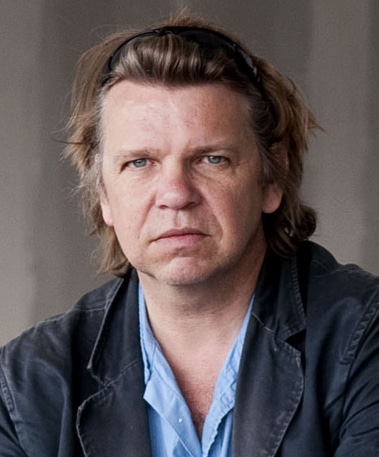
Teun Voeten
As a war photographer, anthropologist, researcher and author, Voeten is passionate to explore la condition humaine, by all means necessary. And he is good at telling you what he found.
Categories
About Teun Voeten
As a war photographer, anthropologist, researcher and author, Voeten is passionate to explore la condition humaine, by all means necessary. And he is good at telling you what he found.
In a unique way, Voeten combines an academic and intellectual background with a wealth of experiences in places that most people would rather not venture. Over the years, Voeten covered the conflicts in the former Yugoslavia, Haiti, Rwanda, Sudan, Angola, Honduras, Sierra Leone, Afghanistan, Colombia, Gaza, Liberia, Lebanon, Iraq, DR Congo, Syria, Libya and Ukraine. His work has been published in Vanity Fair, Newsweek, The New Yorker and National Geographic, among others. In 1987 Voeten started his journalistic work with photo stories highlighting the poverty, crime and drug ridden neighbourhoods of Harlem and the South Bronx.
He was shot by a sniper in Bosnia and had to run from SCUD missiles Saddam fired at Tel Aviv during the First Gulf War. In Colombia, he was briefly kidnapped by communist rebels. Voeten was the only journalist present when the genocide started in Kigali. Several times in Afghanistan he ended up in Taliban ambushes. And in Sierra Leone, he was nearly executed by a gang of drugged-out child soldiers.
In 1994, he took a break from war reporting and picked up his anthropological roots by studying a community that was living in a deserted rail road tunnel in Manhattan. For five months, Voeten lived, worked and slept among crack addicted homeless people. This resulted in his first book called “Tunnel People,” a supreme example of participant observation, according to a Dutch magazine.
In 1998, Voeten went to Sierra Leone to work on a project on child soldiers. His first trip ended nearly in disaster went he was hunted down by rebels intent on killing him. He became himself headline news when he was reported missing after hiding for two weeks in the bush. In his book “How de Body? Hope and Horror in Sierra Leone’, he wrote not only about his personal experiences, but also about the horrible civil war that plagued the country for a decade.
Voeten obtained his PhD from Leiden University with a thesis called “Mexican Drug Violence: Hybrid Warfare, Predatory Capitalism and the Logic of Cruelty.” In this study, for which he visited the killing fields of Mexico dozens of times, Voeten analyzes the dynamics of the violence. Actually, it is a new type of war called hybrid warfare: multidimensional, elusive and unpredictable, fought at different levels, with different intensities and multiple goals. Voeten interprets drug cartels as ultra-capitalist predatory corporations thriving in a neoliberal, global economy. They use similar branding and marketing strategies as legitimate business. He also looks at the anthropological, individual level and explains how people can become killers. Voeten compares Mexican sicarios, West African child soldiers and Western jihadis and sees the same logic of cruelty that facilitates perpetrating ‘inhumane’ acts that are in fact very human.
In 2019, Voeten researched the social and cultural context of drug related crime for the city of Antwerp. His study was published as a bestselling book called ‘Drugs: Antwerp in the grip of the Dutch Drugs Syndicates.’ His latest book is on the rapid advance of the destructive drug crystal meth, for which he carried out research in Mexico, Kabul, Thailand, Los Angeles, Prague and Philadelphia. And even in Holland, where the last years dozens of meth labs have been discovered.
Voeten is a gifted speaker with fascinating stories that cover abstract academics and political to purely personal, from homelessness to the drug violence of Mexican cartels or Dutch organized crime and the eroding character of narco-capitalism. He describes the thin and sometimes often blurry line between legitimate business and crime. Voeten discusses the sense but mostly nonsense of legalization and the excessive narcoticization of the West. He describes the ethical and aesthetic dilemmas in war photography, about balancing between voyeurism and exploitation and the changing face of war, terrorism, crime and globalization.
In a profession with inherent risks, the constant exposure to death and misery, he knows how it feels to be almost killed and actually loose beloved colleagues. But he also explains why a good sense of humour is so important in his job. Voeten talks how human behavior has culture-specific, but also universal aspects. And sometimes, that is a very dark side. Yet Voeten has also witnessed amazing acts of bravery, nobility and self sacrifice.
In an erudite yet vibrant way, Teun Voeten presents, combines and puts into perspective surprising and sometimes provocative points of view. Voeten lectures to audiences ranging from prisoners to police officers, from managers to policy makers, from philosophers to CEO and lawyers, from artists to the local Rotary club. With a sense of humour, a no-nonsense mentality and a wealth of exceptional experiences, from gruesome to wonderful. Teun Voeten knows how to captivate his audience in words and images in an unforgettable and unique way.
Specialist Subjects
"Arash brought his passion and personal experience to the podium"
Arash brought his passion and personal experience to the podium. He inspired the audience of young energy economists at ENGIE about renewable energy and access to affordable electricity for all in Africa. And themselves, as experts and advisors, have the option to make a difference and to promote change by striving for fairly priced renewable energy.
References
Nancy Hunt, President
"As president of the We Are Family Foundation, I have known Teun Voeten since 2003 as a colleague and a friend.
On many occasions, Teun has lent his talent as a photographer to our foundation over the years. But more importantly he has been intricately involved as a curriculum developer, lecturer and teacher for our Three Dot Dash Global Teen Leader Program, where global teen leaders gather for one week in New York to learn the critical tools to effectively “tell their stories” and amplify their work.
Teun is an extraordinarily talented journalist and writer as well as a very dedicated, compassionate and highly motivated person who loves to share and communicate his skills with others. I have seen him at several of his readings, presentations and public performances in New York and he is always thought provoking, frank and intelligent – making deep and lasting impressions on the public.
I highly and enthusiastically recommend Teun as a speaker. He has the rare talent to enthrall his audience, be it teenagers, college students, media professionals or CEOs.
We have been honored to have Teun as part of our team and family."
Steven Latham
"In 2006, I introduced him as a guest speaker at LAIP, Los Angeles Inspiration Project, a TED-like event where artists, scientists, visionaries and policymakers gather to give a presentation of their work. Mr. Voeten's talk was one of the highlights of the day. In a powerful lecture, he was able to the touch the audience as no other speaker did. On another occasion, I arranged for Mr. Voeten to lecture at USC (University of Southern California) and be the guest in a public affairs show I’m producing called, “The Table.” I also interviewed him extensively for an online project of visionary artists called, “Stimulus TV,” where he talked in detail on the aesthetic and ethical aspects of war photography.
Mr. Voeten always manages to captivate the imagination of the audience. His wit and sense of humor combined with his harrowing and awe-inspiring experiences in some of the worst places on earth and his ruthless honesty and thorough knowledge of current affairs make him an unforgettable speaker."


